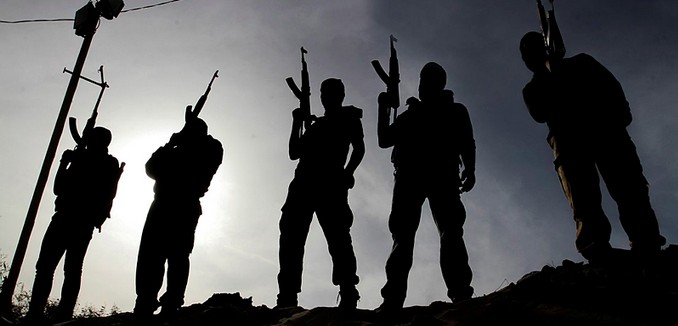The anti-Israel United Nations Security Council resolution that was passed on Friday condemned “all acts of violence against civilians, including acts of terror, as well as all acts of provocation, incitement and destruction.” That language was promptly violated by Fatah, the ruling party of the Palestinian Authority, when it published an image on its official Facebook page depicting a knife dripping with blood with captions thanking the countries that voted for the resolution—suggesting that it took the resolution’s success as a license to encourage terror attacks.
The Palestinian Authority has been obligated to fight both terrorism and violent incitement since it agreed to the Oslo Accords in 1993. But it has failed to seriously address either issue over the past 23 years, and instead has often engaged in or encouraged them. Shalem College Provost Dan Polisar observed last year in Mosaic Magazine that numerous public opinion surveys reveal the extent to which “Palestinian perpetrators of violence reflect and are acting on the basis of views widely held in their society.” An April poll found that 60 percent of Palestinians now approve of “armed attacks against Israeli civilians inside Israel,” likely in no small part due to the rhetoric of Palestinian leaders.
2016 was no exception. Picking up where they left off last year, high-ranking Palestinian officials have engaged in outrageous instances of incitement.
• Fatah Central Committee member Sultan Abu al-Einein, a top advisor to Palestinian Authority President Mahmoud Abbas, told a Palestinian website in June, “If you ask me my blunt position, I would say — every place you find an Israeli, slit his throat.” A few days later, 17-year-old Muhammad Nasser Tarayrah broke into the home of 13-year-old Hallel Yaffa Ariel and stabbed her to death in her bed.
• In October, Palestinian peace negotiator Saeb Erekat praised terrorists who were serving in Israeli prisons “for their acts of heroism, and for their ongoing battle with the occupation.” One such prisoner is Marwan Barghouti, who despite currently serving five life sentences for murder (or perhaps because of it), is one the most popular Palestinian political figures and received the most votes in the Fatah Central Committee elections earlier this month.
• In conjunction with the Fatah party conference, official PA television repeatedly broadcast a song called “Long Live Fatah Men,” which include the lyrics, “Slice open the enemy’s chest, slice it.”
• Almost immediately after U.S. Army veteran and graduate student Taylor Force was stabbed to death by a Palestinian in March, Fatah’s official Facebook page praised Force’s killer as “a heroic martyr.” The killer was also called a “Shahid,” or Islamic martyr, on official PA television, while his victims were called “settlers.”
• Such pro-terror attitudes start at the top. In September, Abbas himself hailed a Jordanian who attempted to stab an Israeli soldier as a “martyr.”
• When pressed to condemn stabbings, shootings and car rammings against against Israeli civilians, Abbas repeatedly refused.
• Abbas publicly received the families of terrorists, whom he called “martyrs,” just hours after three terrorists killed 19-year-old policewoman Hadar Cohen in February. Fatah’s official Facebook page called the three assailants who killed Cohen “role models.”
[Photo: Abed Rahim Khatib / Flash90 ]




